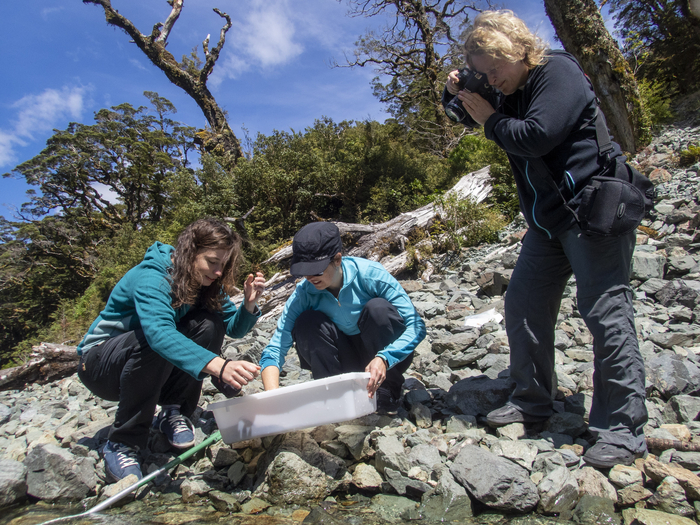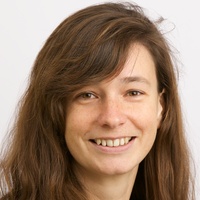Mitarbeitende
Frida Feijen


Dr. Frida Feijen
Über mich
[[ element.title ]]
[[ element.title ]]
[[ element.title ]]
Publikationen
[[item.title]]
Llopis-Belenguer, C.; Feijen, F.; Morand, S.; Chaisiri, K.; Ribas, A.; Jokela, J. (2024) Host and parasite intervality in differentially human-modified habitats, Oikos, 2024(12), e10446 (14 pp.), doi:10.1111/oik.10446, Institutional Repository
Kosman, E.; Feijen, F.; Jokela, J. (2024) Effective number of different populations: a new concept and how to use it, Ecology and Evolution, 14(9), e70303 (14 pp.), doi:10.1002/ece3.70303, Institutional Repository
Feijen, F.; Buser, C.; Klappert, K.; Jokela, J. (2023) Parasite infection and the movement of the aquatic snail Potamopyrgus antipodarum along a depth cline, Ecology and Evolution, 13(5), e10124 (8 pp.), doi:10.1002/ece3.10124, Institutional Repository
Feijen, F.; Zajac, N.; Vorburger, C.; Blasco-Costa, I.; Jokela, J. (2022) Phylogeography and cryptic species structure of a locally adapted parasite in New Zealand, Molecular Ecology, 31(15), 4112-4126, doi:10.1111/mec.16570, Institutional Repository
Feijen, F. A. A.; Vos, R. A.; Nuytinck, J.; Merckx, V. S. F. T. (2018) Evolutionary dynamics of mycorrhizal symbiosis in land plant diversification, Scientific Reports, 8(1), 10698 (7 pp.), doi:10.1038/s41598-018-28920-x, Institutional Repository
Blasco-Costa, I.; Seppälä, K.; Feijen, F.; Zajac, N.; Klappert, K.; Jokela, J. (2020) A new species of Atriophallophorus Deblock & Rosé, 1964 (Trematoda: Microphallidae) described from in vitro-grown adults and metacercariae from Potamopyrgus antipodarum (Gray, 1843) (Mollusca: Tateidae), Journal of Helminthology, 94, e108 (15 pp.), doi:10.1017/S0022149X19000993, Institutional Repository
[[item.title]]
[[ entry.title]]
[[ element.title ]]
[[ element.title ]]
Adresse
| E-Mail: | frida.feijen@cluttereawag.ch |
| Telefon: | +41 58 765 5488 |
| Fax: | +41 58 765 1122 |
| Adresse: | Eawag
Überlandstrasse 133 8600 Dübendorf |
| Büro: | NO 218 |
